Day of the military translator
Even at the dawn of Russian statehood, “interpreters” appeared in the princely warriors - people who knew other languages (as a rule, the languages of the nearest neighbors and potential opponents) and were able to perform the functions of translators. In 1549, the Ambassadorial Order was created, which served as a diplomatic department and had a staff of translators. Originally, the Ambassadors Order consisted of an 22 translator and 17 interpreters involved in interpreting. The division into civilian and military translators did not exist at that time. The further development and strengthening of Russian statehood, the entry into Russia of vast lands in the Caucasus, Central Asia, Siberia and the Far East, and the establishment of contacts with various countries of the world demanded a more careful attitude to the organization of translation.
In 1885, special officers' courses were organized in the Oriental Languages Department of the Asian Department of the Ministry of Foreign Affairs of the Russian Empire, which trained military interpreters. The courses immediately became known in the officer corps and became very prestigious - at least every 10 officer of the Russian Imperial Army claimed for each course participant. For many, the profession of a military translator was very interesting because it gave not only the opportunity to learn foreign languages, but also to visit many places, including abroad, to make a career in the military diplomatic service. The graduates of the courses served in the Caucasus and Central Asia as officers of the border guards, district chiefs. In 1899, the Eastern Institute was opened in Vladivostok, where Orientalists were taught with knowledge of Chinese, Japanese, Korean, Mongolian, and Manchurian, then the Tibetan language was added to the institute’s program - at that time the Russian Empire showed great interest in Tibet and Central Asia generally. In addition, the training of translators was carried out on foreign language courses, which were opened at the headquarters of the military districts of the Russian army.
In 1911, special district preparatory schools for military interpreters were opened at the headquarters of the Amur, Turkestan and Caucasus military districts. In Tiflis and Tashkent schools, five officers each year were trained, and there were twelve officers in the school at the headquarters of the Amur Military District. The Tiflis school taught Turkish and Persian languages, the Tashkent school taught Persian, Uzbek, Afghan, Chinese, and Urdu, the Irkutsk school taught Chinese, Japanese, Mongolian, and Korean.
In Soviet Russia, as already noted above, the start of the military translator profession was given just to 21 in May 1929, by a corresponding order. Nevertheless, a full-fledged system of training military translators was established only by the middle of the twentieth century. In the 1940 year, a year before the start of the war, the Council of People's Commissars of the USSR adopted a resolution establishing the special Military Faculty with the status of a higher military school at 2-Moscow State Pedagogical Institute of Foreign Languages (2-th MGPI). The faculty was supposed to train military teachers of English, German and French for schools and academies of the Red Army.
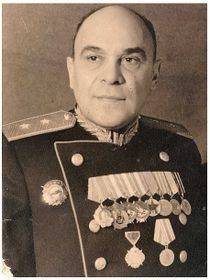 Major-General Nikolai Biyazi, a man of surprising origin and biography, was appointed head of the faculty. A descendant of Italian immigrants, Nikolai Nikolayevich Biyazi began serving in the tsarist army - in ordinary positions, and then, for courage and ability, was sent to courses of short-term training of ensigns, he served as a second lieutenant. After the October Revolution, he moved to the side of the Bolsheviks, served in the Red Army, where he was the head of the Tiflis infantry school, then the Fourth Tashkent Lenin Joint Command School in Tashkent. Before being appointed head of the faculty, Nikolai Biyazi served as military attache of the USSR in Italy. Interestingly, in addition to a brilliant military career, Nikolai Nikolayevich Biyazi was one of the first Russian sports judges. He became the first graduated football judge back in the Russian Empire; in June 1918, he judged the final of the first football championship in Soviet Russia.
Major-General Nikolai Biyazi, a man of surprising origin and biography, was appointed head of the faculty. A descendant of Italian immigrants, Nikolai Nikolayevich Biyazi began serving in the tsarist army - in ordinary positions, and then, for courage and ability, was sent to courses of short-term training of ensigns, he served as a second lieutenant. After the October Revolution, he moved to the side of the Bolsheviks, served in the Red Army, where he was the head of the Tiflis infantry school, then the Fourth Tashkent Lenin Joint Command School in Tashkent. Before being appointed head of the faculty, Nikolai Biyazi served as military attache of the USSR in Italy. Interestingly, in addition to a brilliant military career, Nikolai Nikolayevich Biyazi was one of the first Russian sports judges. He became the first graduated football judge back in the Russian Empire; in June 1918, he judged the final of the first football championship in Soviet Russia. At the beginning of 1941, the faculty was renamed the Military Faculty of Western Languages at 1 and 2 in Moscow State Pedagogical Institutes of Foreign Languages. In June, the 1940 of the year, almost simultaneously with the opening of the Military Faculty at the 2 of the Moscow State Pedagogical Institute of Foreign Languages, the Military Faculty of the All-Union Institute of Oriental Languages was opened. It was used to train military translators and teachers of oriental languages.
However, during World War II, the need for translators and teachers of foreign languages increased to such an extent that the Military Department of Western Languages at 2-th MGPI 12 on April 1942 was reorganized into the Military Institute of Foreign Languages of the Red Army (VIIYAK). The military faculty of the All-Union Institute of Oriental Languages also became part of the VIJAK. The Main Intelligence Directorate of the General Staff of the Red Army, for which the main part of the staff trained at the Military Institute of Foreign Languages, dealt with the reorganization of the faculties and the creation of the VIIYAK. The curricula of the Institute were also approved by the head of the GRU of the General Staff of the Red Army.
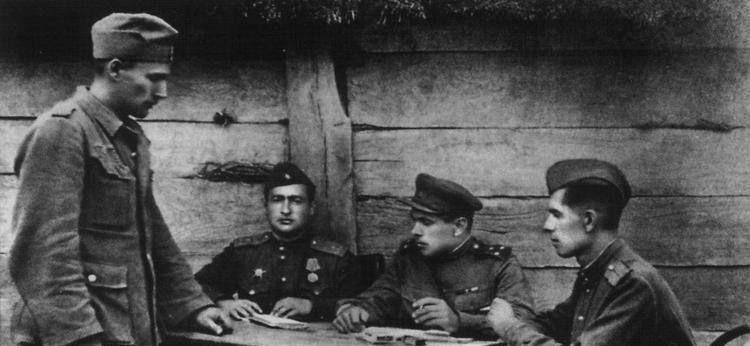
The Western and Eastern faculties, as well as refresher courses with branches of Western and Eastern languages, were established as part of the Military Institute of Foreign Languages. The periods of study at the faculties were three years, and at the refresher courses one year. The institute trained specialists in two main areas - military translators-referents and military teachers of foreign languages for military schools and academies of the Red Army. No more than 20% of the students of the Institute could be citizens sent to study by the People's Commissariat of the USSR Navy and the People's Commissariat of Internal Affairs of the USSR.
The shortage of military translators in the army made the Red Army command to transfer the Military Institute of Foreign Languages for the duration of the war to a course system for training specialists, which made it possible to prepare the cadets as soon as possible. In such courses, the famous Soviet and Russian artist Vladimir Etush studied during the war. The courses were taught German, as well as other languages of countries - opponents of the Soviet Union. At first, the institute was in evacuation - in the city of Stavropol on the Volga, and in the fall of 1943, he returned to Moscow.
During the years of the Great Patriotic War, more than 3000 specialists, translators who served in the army, partisan detachments, editorial offices of newspapers, offices and headquarters of the Red Army, were trained at the institute and on the courses. The contribution of military translators to the victory over Germany is invaluable. Very often, it was possible to avoid unnecessary bloodshed precisely because of the work of military translators. For example, thanks to captain Vladimir Samoilovich Gall, they managed to take the citadel, which was defended by the nazis, without a fight. 24 June 1945, at the Victory Parade, the calculation of the Military Institute of Foreign Languages was headed by Lieutenant-General Nikolai Nikolayevich Biyazi.
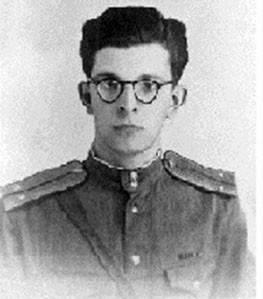
Interestingly, in the 1949, the Military Institute of Foreign Languages graduated from one of its most famous graduates - the future writer Arkady Natanovich Strugatsky. He received a degree in translator from Japanese and English and served in the Soviet Army for six years. In particular, Arkady Strugatsky was a translator during the investigation of the preparation of the Tokyo process over the top of militaristic Japan, then he taught foreign languages at the Kansk Military Infantry School, in 1952-1954. He served as a divisional translator in Kamchatka, and in 1955 in Khabarovsk for a special purpose.
After the war, the service of military translators was waiting for a new, no less difficult time. The era of strategic confrontation between the USSR and the USA began, and in Asia, Africa, and Latin America, anti-colonial and revolutionary movements became more active. The confrontation with the West in the “third world” countries demanded from the USSR a high-quality training of specialists who spoke a wide variety of foreign languages - from English and French to Korean, Vietnamese, Arabic, and the languages of the peoples of South Asia.
The Military Institute of Foreign Languages could no longer cover the growing needs of the Soviet Army and the KGB of the USSR for military translators, therefore, like during the Great Patriotic War, accelerated courses of military translators were opened, which were used to train specialists with knowledge of foreign languages.
Graduates of the VIIA and the training of officer-translators served around the world where the USSR had its own interests. They served in Angola and Afghanistan, Mozambique and Egypt, Algeria and Ethiopia, Libya and Iraq, Vietnam and South Yemen, not to mention the Warsaw Pact countries. An entire crew of flight attendants was also trained. Especially actively in the 1960-ies were preparing translators with knowledge of Arabic - at this time the Soviet Union was actively involved in the Middle East policy, increased cooperation with Arab countries - Syria, Egypt, Yemen, Algeria, Libya, Iraq and many other states.
In 1974, after being admitted to the institute of the military law faculty of the Military-Political Academy. IN AND. Lenin, the Military Institute of Foreign Languages was renamed the Military Institute of the Ministry of Defense of the USSR. Currently, the training of military translators is carried out at the Faculty of Foreign Languages of the Military University of the Ministry of Defense of the Russian Federation.
The profession of a military translator has always been prestigious, but also dangerous. In Afghanistan alone, according to official figures, 15 military translators died. In fact, of course there are more losses - you need to take into account those who worked through the special services, but statistics are silent about their losses. In Soviet times, forty foreign languages were taught at the Military Institute. It was a unique educational institution that did not have world analogues. And still the needs of the army and fleet, the institute did not cover the state security organs in military translators. Therefore, often the positions of military translators were closed by graduates of civilian universities called up for military service. Especially felt the lack of specialists in relatively rare languages, so they could be sent abroad even before graduation.
For example, Igor Sechin, who studied in the Portuguese group of the philological faculty of the Leningrad State University named after A.A. Zhdanova, was sent on a business trip to Mozambique while studying in the fifth year. Then, after graduation, he was called up for military service in the Armed Forces of the USSR. For several months, the future head of Rosneft spent in the Turkmen SSR, where the international center for training air defense specialists was located. Since many cadets from Angola and Mozambique studied at the center, translators from Portuguese were very much in demand there. Then Sechin was transferred to Angola, where there was a civil war. He served as a senior translator for a group of Navy advisers in Luanda, then in the group of anti-aircraft missile forces in the province of Namib.
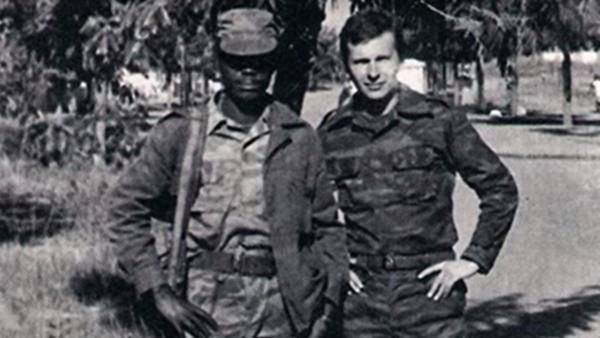
In 1990-s, a significant blow was delivered to the training system for military translators, which was also due to the general weakening of the state’s interest in the armed forces. But now, when Russia again demonstrates activity on an international scale, is building up its military and political influence in the most diverse regions of the planet, the profession of a military translator is rapidly being revived. The Middle and Near East, Southeast and South Asia, the Far East, the African continent - everywhere Russia has its own interests, which means there is a need for military specialists who speak local languages.
Being a translator in uniform is interesting, prestigious and honorable. “Military Review” congratulates all current and future military translators and military translation veterans on their professional holiday, wishes maximum professional and life success, no loss, peaceful and interesting service.
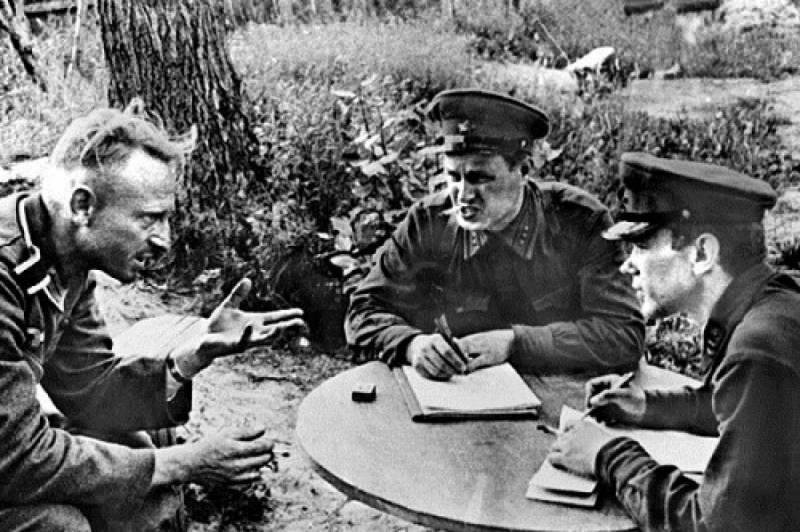
Information